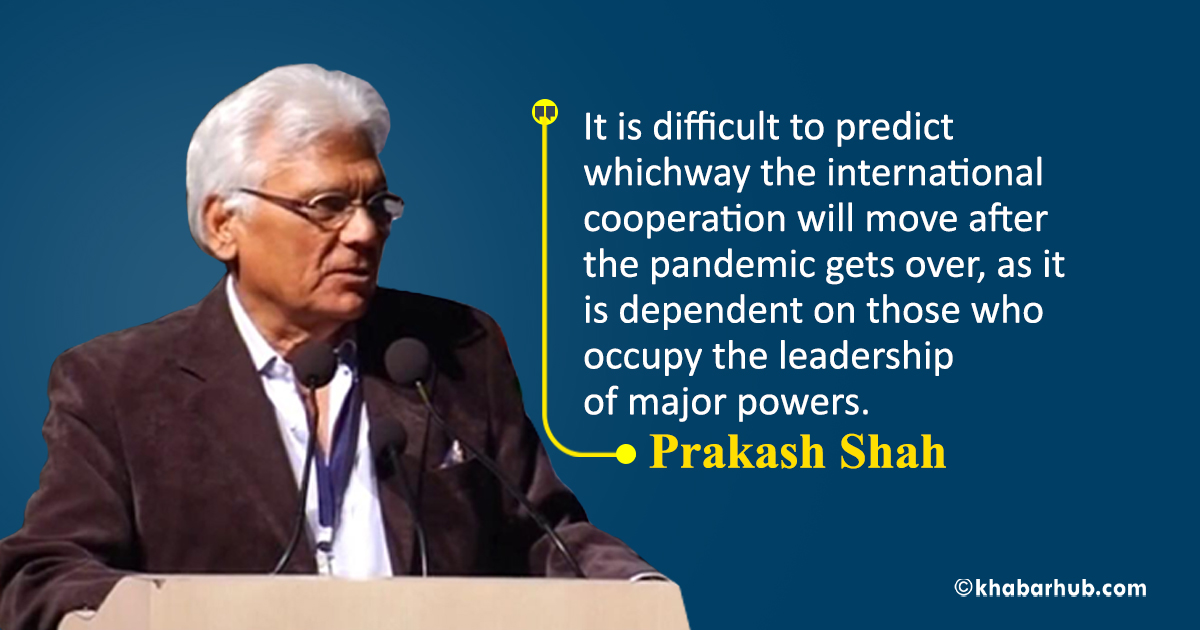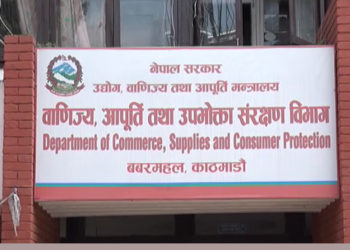International relations depend on several factors, not just the Coronavirus. Since the virus has hit practically the whole world, and we are still not certain when we would see the end of this phase, it is difficult to prognosticate whether its effect on international relations will be more permanent or temporary that we believe.
For years, international relations had moved to global relations rather than being based on purely domestic or national issues. We are all faced with security related global issues in the last 20 years or so, which has forced us to talk more about global solutions to global issues.
The original UN Charter given in 1946 focused on sovereignty – a principle that was a focus of all our attention. In fact, the UN charter had made provisions for world peace and cooperation, mainly on the basis of the principle of sovereignty.
As years passed, the international community found that international cooperation on these heavy issues could not move forward as long as the unmentioned veto issue in the Security Council in the UN became the prime concern for the permanent powers.
The UN Charter was based on experiences of the Second World War and was focused primarily on threats to international security emanating from one-member country to another and detailed provision was therefore made on how to deal with the threat of conflict between two nations to international peace and security.
Article 51 of the UN Charter included a provision for mediation, arbitration etc, as measures to be resorted to for ending the conflict between two nations before the UN considered a military intervention.
As years passed, the international community found that international cooperation on these heavy issues could not move forward as long as the unmentioned veto issue in the Security Council in the UN became the prime concern for the permanent powers.
Most of the issues that came before the security council clearly threatened international peace, but could not be resolved by the UN Security Council, because one or the other 5 permanent members vetoed any solution that was considered against the interest of that country concerned.
As a dynamic organization, the UN moved away from bilateral issues to international issues which went beyond the sovereignty issue and affected the world as a whole without recognizing territorial boundaries.
The definition of threat to international peace and security may have been changed some 20 years ago, when the dreaded HIV AIDS hit the world and became a disease that did not keep international boundaries as an obstacle to its spread.
It is difficult to predict which way the international cooperation will move after the pandemic gets over, as it is dependent on those who occupy the leadership of major powers.
This was quickly followed by terrorism and climate change (environment issue) as well as acts of god such as tsunami and earthquakes which needed to be attacked by the international community as a cooperative issue.
Meeting these international threats on a territorial basis or a country basis was no longer possible and countries began to cooperate under the UN umbrella, whether by General Assembly, Security Council or special conferences dealing with climate issues.
While the international community did make cooperative efforts to solve these problems, the world found that the agreements made at these conferences were not approved by several governments and therefore, not implemented.
The new US administration which elected President Donald Trump as its leader, withdrew from the climate change agreement first and then moved away from the UN’s World Health Organisation (WHO) when the current virus threat hit the world.
The need for international cooperation to deal with international threats like diseases, climate change, terrorism etc, came at a time when unfortunately over the last 3 years or so, individual leaders were elected in countries like the US, UK, India, France etc, who moved away from global cooperation and resorted to national or domestic development along with some dictatorial powers such as China, Russia and some Arab countries.
International cooperation and friendship became more difficult to achieve even though some countries like India helped countries such as the US, UK, Afghanistan, Israel and Brazil with the sharing of hydroxychloroquine tablets and paracetamol tablets, which India had in plenty, at their request.
Nevertheless, the persistent demand by the US, Australia, UK and others to send an international team to China, to investigate whether the current virus was a natural one from Wuhan, or whether it was deliberately released by China, created a major impediment to the return of globalization, if and when the pandemic gets over.
People such as prominent Israeli historian, Yuval Noah Harari, and an American business magnate, Bill Gates, have emphatically said that the solution to the pandemic will only be found if international cooperative effort was made to replace individual efforts of each country.
The hope that WHO or UN will take on these efforts for cooperation in defeating the virus, about which much was expected, has also disappeared with the Americans announcing a withdrawal from WHO.
The effort of Prime Minister Modi to first get the SAARC to cooperate in fighting the virus were frustrated by Pakistan, on the facetious issue of Kashmir. His subsequent effort to get the G20 meeting to get together on fighting the virus epidemic, failed to get the approval of both the US and China, who were at opposite ends on this issue.
It is difficult to predict which way the international cooperation will move after the pandemic gets over, as it is dependent on those who occupy the leadership of major powers.
The hope that WHO or UN will take on these efforts for cooperation in defeating the virus, about which much was expected, has also disappeared with the Americans announcing a withdrawal from WHO.
This does not mean that India is against international cooperation, simply because the Prime Minister has appealed to the people of India to manufacture and produce as many things as possible domestically rather depend on outsiders.
People believe that his main reason for this appeal is that China has stopped exporting the basic material for pharmaceutical productions in India and that we in India, are importing a lot more Chinese products which we could produce easily because Chinese products are cheaper.
In other words, the Prime Minister’s appeal for increase in production in India of items which we are importing does not mean that he wants India to be self-dependent and that he is against international trade. The Prime Minister is equally committed to global economic cooperation, particularly since no country, however big or powerful they are, can be self dependent in every respect.
(Ambassador Prakash Shah has served as Under Secretary General of the UN and India’s Permanent Representative to the UN both in New York and Geneva)









Comment